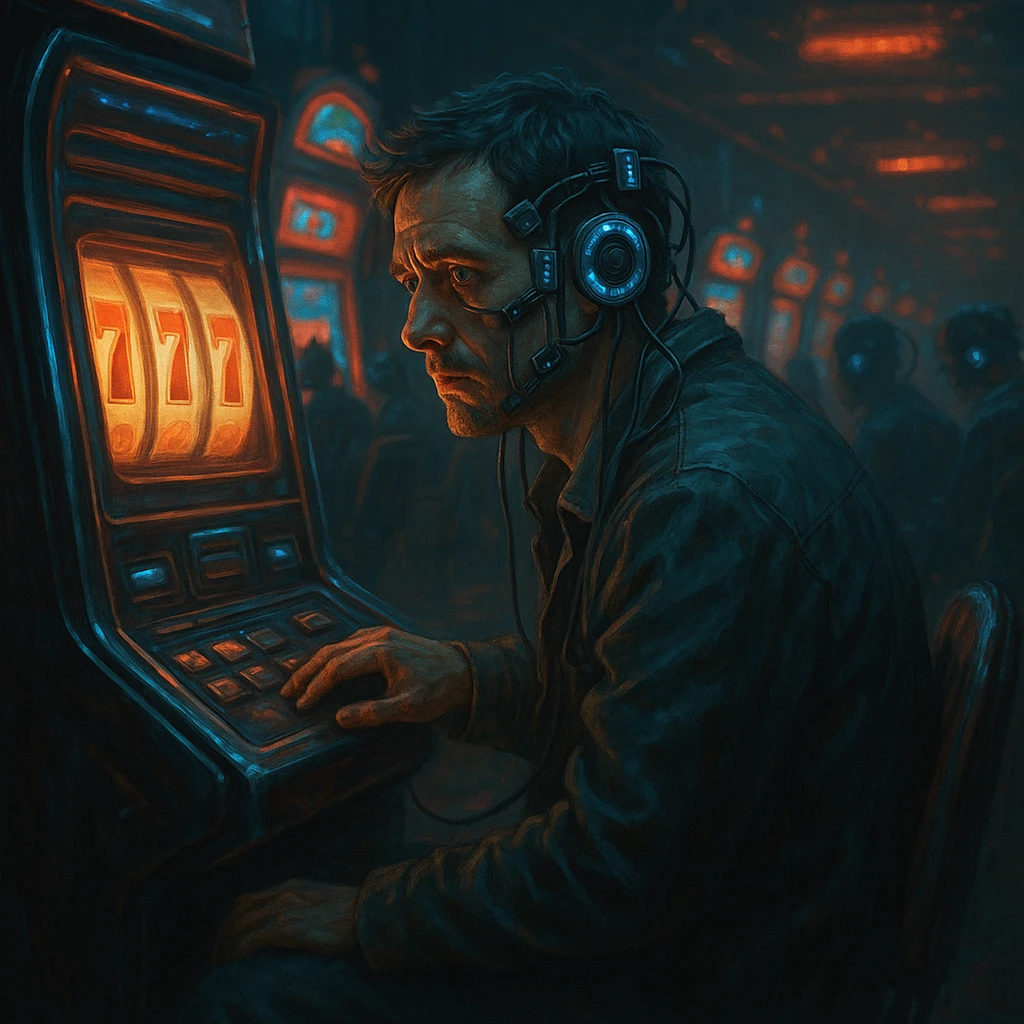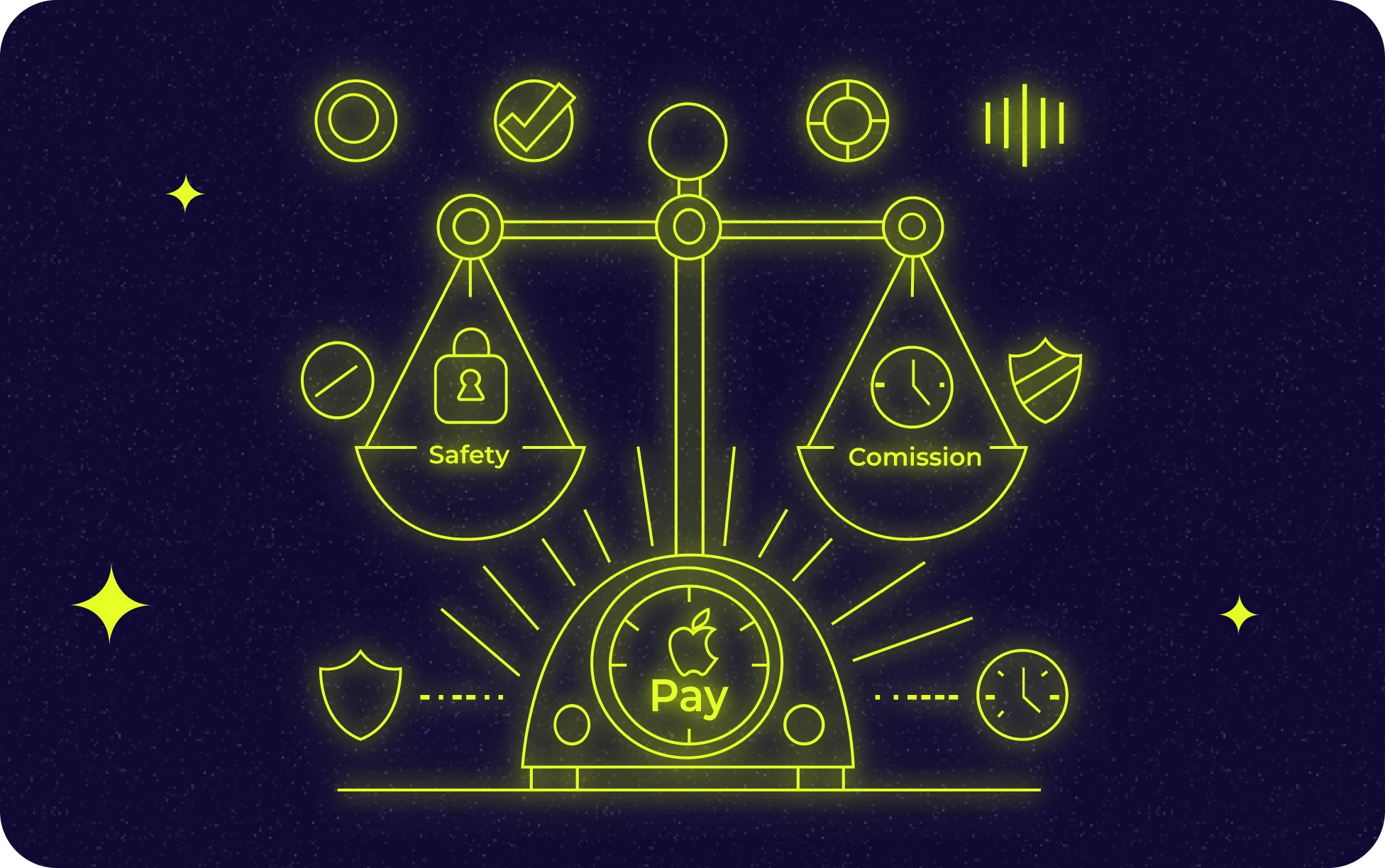VR casinos use 8K visuals and AI to personalize slots, blurring reality for 20% of players who lose hours, risking digital gambling traps in Canada’s $2.4B iGaming market.

Digital Gambling Risks: A Black Mirror-Style Look
Imagine slipping on a VR headset in 2025, stepping into a glittering casino where slots pulse with your favorite colors and AI dealers whisper tailored bets.
Canada’s VR casinos are here, but this Black Mirror gambling vision hides digital gambling traps.
With Ontario’s iGaming market hitting $2.4 billion quarterly, virtual reality casinos powered by AI in casinos promise an immersive gambling experience—yet lurk with digital gambling dangers.
This post explores how casino addiction technology, online gambling manipulation, and behavioral traps in casinos could ensnare players, blending gambling psychology with a dystopian edge.
Let’s navigate the risks of digital casinos and gambling addiction prevention in Canada’s future of online gambling.
When AI and VR Turn Gambling Into a Hyper-Personalized Virtual World
VR technology in gambling and AI in gambling industry are reshaping Canada’s casinos into hyper-personalized realms. By 2025, 500,000 Canadians use VR headsets, with 30% exploring virtual casinos.
These VR casinos craft seductive worlds, but their Black Mirror gambling allure risks trapping players. This is how:
- VR Immersion: 8K visuals and haptic gloves mimic slot pulls, with 25% of players craving social avatars.
- AI Personalization: Algorithms track bets, tailoring game themes to your preferences, with 15% of platforms using adaptive dealers.
- Dopamine Hooks: Slots with 96% RTP trigger rewards, exploiting gambling psychology, with 20% losing hours in VR.
This immersive gambling experience feels thrilling, but AI and gambling personalization can blur reality, creating digital gambling traps.
“Show us something real and free and beautiful. You couldn’t. Yeah? It’d break us. We’re too numb for it. I might as well choke.”
— Black Mirror Series
The Dark Side: How Technology Fuels Casino Addiction
Casino addiction technology in virtual reality casinos amplifies digital gambling dangers. In Canada, 30% of online gamblers overspend, and VR casinos intensify this risk.
The Black Mirror gambling scenario—where players can’t log out—looms large. Key behavioral traps in casinos include:
- Time Distortion: VR’s clockless lobbies make hours vanish, affecting 20% of players.
- Escapism: 65% of Canadians gamble for stress relief, and VR’s vivid worlds offer a seductive retreat.
- Compulsive Loops: AI-driven nudges (e.g., “one more spin”) exploit gambling psychology, with 10% at addiction risk.
These risks of digital casinos demand robust gambling addiction prevention to protect players.
“I watched a VR slot spin in a neon-lit lobby, so real I forgot time—Canada’s VR casinos are mesmerizing, but their digital gambling traps scare me, with 20% of players losing hours to casino addiction technology.”

AI Manipulation: The Invisible Hand in Online Gambling
AI in casinos goes beyond personalization, veering into online gambling manipulation.
In Canada’s $2.4 billion iGaming market, AI in gambling industry tools shape player behavior, raising ethical issues in online gambling.
While online gambling fairness is mandated, AI and gambling manipulation skirts ethical lines, creating digital gambling traps.
Consider these tactics:
Behavioral Tracking
AI monitors every click, adjusting odds or bonuses to keep you betting, used by 40% of platforms.
Nudging Techniques
Pop-ups like “You’re on a streak!” exploit loss aversion, with 15% of players bypassing limits.
Dynamic Pricing
AI tweaks bet sizes based on your spending, subtly draining wallets.
Ethical Dilemmas: Fairness vs Exploitation in Digital Casinos
Ethical issues in online gambling haunt Canada’s virtual casinos and addiction landscape.
With 1.9 million active iGaming accounts, the balance between online gambling fairness and exploitation is precarious. Key concerns include:
- Addiction Profiteering: Platforms profit from compulsive play, with 30% overspending.
- Targeting Vulnerables: AI identifies high-risk players, offering bonuses to keep them hooked, despite 1.6% addiction rates.
- Regulatory Gaps: Only 5% of platforms use biometric monitoring to detect distress, lagging behind gambling addiction prevention.
Black Mirror gambling warns of a future where profit trumps ethics unless oversight tightens.
“I urge players to cap bets at $20 daily, knowing 30% overspend in Canada’s virtual reality casinos—gambling addiction prevention is my mantra to escape the risks of digital casinos in 2025.”
Regulatory Challenges: Can Canada Outsmart Digital Traps?
Gambling regulations Canada struggle to keep pace with VR technology in gambling and AI in casinos.
Ontario’s iGaming framework oversees $526 million quarterly, but digital gambling dangers challenge enforcement. Issues include:
- Jurisdictional Limits: VR casinos operate globally, complicating taxation, with 2025 laws lagging.
- Weak AI Rules: Only 40% of platforms enforce spending caps, with 15% exploiting loopholes.
- Addiction Tools: Self-exclusion reaches 304,000, but VR’s pull undermines limits.
Stronger online gambling fairness measures are vital to counter behavioral traps in casinos.
Player Strategies: Avoiding the Black Mirror Trap
To navigate risks of digital casinos, Canadian players need savvy gambling addiction prevention strategies. With 10% at addiction risk, here’s how to stay safe:
Set Time Limits
Use timers to avoid VR’s 20% time distortion trap.
Budget Wisely
Cap bets at $20–$50 daily to curb 30% overspend.
Choose Regulated Sites
Opt for iGaming Ontario-licensed platforms with 256-bit encryption.
Avoid Nudges
Ignore “one more spin” prompts, used by 40% of AI-driven sites.
Seek Support
Use Canada’s gambling helplines if play feels compulsive.


The Future: A Dystopian Casino or a Balanced Game?
The future of online gambling in Canada hinges on ethics and innovation. By 2025, VR casinos and AI in the gambling industry could dominate, with 500,000 VR users and $2.4 billion in iGaming revenue.
But Black Mirror gambling risks loom unless addressed:
- Ethical AI: Platforms must limit manipulative nudges, with only 5% using biometrics.
- VR Regulation: Federal laws could unify oversight, reducing digital gambling traps.
- Player Education: Awareness of gambling psychology can empower safer play.
Canada’s virtual casinos and addiction challenge demands a balance between thrill and safety.
Conclusion: Escaping the Digital Casino Trap
Canada’s VR casinos offer an immersive gambling experience, but Black Mirror gambling reveals digital gambling dangers.
With AI in casinos personalizing bets and VR technology in gambling blurring reality, casino addiction technology threatens 10% of players.
Ethical issues in online gambling and behavioral traps in casinos demand action. Choose regulated platforms, set limits, and stay vigilant to enjoy future of online gambling without falling into a digital gambling trap.
Will you spin the virtual reels or unplug before it’s too late?
“I marvel at Canada’s VR casinos, with 500,000 diving into vivid slots, but dread their Black Mirror gambling pull—only 5% use biometrics to curb virtual casinos and addiction in 2025.”
FAQ
AI in casinos tracks bets to tailor games, nudging players with “one more spin” prompts, fueling Black Mirror gambling risks, with 15% bypassing limits in Canada.
Casino addiction technology like VR’s clockless lobbies and AI nudges hooks 10% of players, with 30% overspending, amplifying virtual casinos and addiction risks.
Online gambling fairness is mandated, but ethical issues in online gambling persist, as 40% of platforms use AI to nudge bets, exploiting gambling psychology in VR technology in gambling.
Set C$20–C$50 budgets, use timers, and choose iGaming Ontario-licensed VR casinos to counter digital gambling dangers and ensure gambling addiction prevention in Canada.




